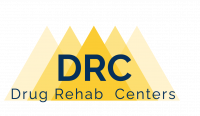The Dangers of Mixing Cocaine and Alcohol

Mixing alcohol and cocaine is one of the most dangerous forms of substance abuse. Whether you use cocaine occasionally or regularly, combining alcohol and cocaine is always inadvisable. Each substance has its own physical and psychological impact when taken independently – cocaine acts as a central nervous system stimulant while alcohol is a CNS depressant. The cocaine and alcohol mix intensifies these effects and increases the risk of adverse outcomes.
- Read on to learn:
Can you mix cocaine and alcohol? - What happens when you mix cocaine and alcohol?
- How to connect with addiction treatment in California.
Effects of Cocaine and Alcohol Together
Immediate dangers arise from both alcohol and cocaine consumption. For instance, alcohol presents a number of short-term risks, such as:
- Blurred vision
- Unpredictable mood swings
- Vomiting
- Dehydration
- Blackouts
- Reduced inhibitions, potentially leading to risky behaviors like experimenting with illegal drugs like cocaine after drinking
- Alcohol poisoning
The short-term risks associated with cocaine include:
- Increased heart rate and body temperature
- Feelings of anxiety or paranoia
- Heightened impulsiveness and potential for aggression
- Elevated blood pressure
An alcohol and cocaine mix can promote a false sense of invincibility, increasing the likelihood of engaging in behaviors that jeopardize safety. Beyond this, common negative effects like aggression may intensify as one of the most common alcohol and cocaine interactions.
These short-term risks highlight that even recreational use of these substances can rapidly harm both your physical well-being and mood. They can also impact your mental health. This is often most pronounced during the comedown period in the days following the use of cocaine and alcohol. A comedown occurs when your body is processing and eliminating drugs it has been exposed to. The severity of cocaine and alcohol withdrawal symptoms can vary based on the quantity and duration of drug use and varies among individuals. Managing a cocaine comedown can be challenging, and many people may experience cravings to consume more drugs to alleviate the symptoms, which can potentially lead to addiction as the body becomes reliant on drugs to function.
Following alcohol’s departure from your system, you may also encounter hangxiety. This occurs as your body adapts to the absence of alcohol, leading to distress and increased anxiety. While alcohol is often known as a social lubricant, excessive consumption can exacerbate or induce anxiety.
Mixing cocaine and alcohol is associated with an increased risk of suicidal tendencies. Long-term use can also have detrimental effects on long-term physical health, potentially leading to fatal outcomes.
Chronic consumption of alcohol carries these long-term risks:
- Elevated risk of stroke, heart attacks, and cancer
- Brain damage
- Liver damage
- High blood pressure
- Mental health conditions like anxiety or depression
Likewise, long-term cocaine use can result in issues similar to those caused by alcohol, including:
- Damage to the nose or mouth
- Risk of blood clots and embolisms
- Heart attacks
- Breathing complications
- Seizures
- Strokes
- Mental health disorders like paranoia, psychosis, or hallucinations
- Liver damage
- Kidney damage
These toxic effects are magnified when they are consumed together, as this combination creates new metabolites in the body. One of the most potent compounds formed is cocaethylene, which can harm vital organs such as the liver and heart. Cocaethylene is an alcohol and cocaine metabolite that remains in the body for a longer duration than alcohol or cocaine in isolation and is associated with heightened dependence, increased cravings, and a significantly elevated risk of severe health issues.

Dangers of Cocaine and Alcohol Compound
Cocaethylene is a toxic metabolite produced when cocaine and alcohol are combined. This resultant substance, essentially a novel psychoactive compound, shares a similar potency with cocaine but has a more prolonged duration of action.
Much like cocaine, cocaethylene impedes the reuptake of dopamine—the body’s natural reward neurotransmitter associated with motivation, movement, and the pursuit of rewards. This mechanism enhances the reinforcing effects of dopamine, leading to heightened sensations of pleasure, energy, focus, and excitement. That said, cocaethylene also magnifies the potential for severe health consequences, including:
- Sudden death from potentially lethal heart attacks, strokes, or hyperthermia.
- Sudden fatalities linked to cocaine-related violence (e.g., car accidents, firearm incidents, strangulations).
- Liver complications, such as fibrosis and liver toxicity, which increase the likelihood of hospitalization in intensive care units.
For individuals engaged in chronic cocaine use, cocaethylene raises the risk of experiencing prolonged and potentially enduring panic and anxiety episodes.
Treatment for Cocaine and Alcohol Addiction
Combating co-occurring addictions to cocaine and alcohol requires a comprehensive and tailored approach to address the unique challenges of each substance. Here are some key components of treatment for individuals struggling with addiction to cocaine and alcohol:
- Medical detoxification: The first step in treatment may involve medical detoxification, especially if the individual is physically dependent on one or both substances. Medical professionals closely monitor and manage withdrawal symptoms to ensure safety and comfort during this critical phase.
- Inpatient or outpatient rehab: Depending on the severity of the addiction and individual needs, individuals may opt for inpatient or outpatient rehab programs. Inpatient programs provide around-the-clock care in a controlled environment, while outpatient programs offer flexibility for those with strong support systems at home.
- Behavioral therapy: Various forms of behavioral therapy, such as CBT (cognitive behavioral therapy) and CM (contingency management) are effective in addressing both cocaine and alcohol addiction. These therapies help individuals identify triggers, develop coping strategies, and modify addictive behaviors.
- Dual diagnosis treatment: Many individuals struggling with cocaine and alcohol addiction have underlying mental health conditions. Dual diagnosis treatment addresses both addiction and co-occurring mental health disorders simultaneously, providing comprehensive care.
- Support groups: Participation in support groups like NA (Narcotics Anonymous) and AA (Alcoholics Anonymous) can offer valuable peer support and a sense of community. These groups provide a safe space for individuals to share their experiences, challenges, and successes in recovery.
- MAT (medication-assisted treatment): Medications like disulfiram, acamprosate, and naltrexone may be considered for alcohol addiction treatment. Currently, there are no FDA-approved medications specifically for cocaine addiction, but research in this area continues.
- Relapse prevention: Learning strategies to prevent relapse is a crucial aspect of addiction treatment. Patients develop skills to identify high-risk situations and implement coping mechanisms to maintain sobriety.
- Family involvement: Involving family members in the treatment process can be instrumental in repairing relationships, improving communication, and creating a supportive environment for recovery.
- Holistic approaches: Holistic therapies such as yoga, mindfulness meditation, and exercise can enhance overall well-being and stress management during recovery.
- Aftercare planning: Recovery is an ongoing process. After completing a formal treatment program, individuals should have a well-developed aftercare plan that may include continued therapy, support group attendance, and regular check-ins with a counselor or therapist.
Treatment should be tailored to the individual’s unique needs and circumstances. Effective treatment for cocaine and alcohol addiction often requires addressing the physical, psychological, and social aspects of the problem. Seeking professional help and support is a crucial step toward achieving lasting recovery from these challenging co-occurring addictions.

Get Treatment for Cocaine and Alcohol Addiction at Drug Rehab Centers
If you have been abusing cocaine and alcohol, engaging with evidence-based treatment will streamline the transition from active addiction to ongoing recovery. We can help you achieve this with addiction treatment at Drug Rehab Centers.
For those who require a supervised medical detox, we can connect you with licensed medical detox centers throughout the state of California. Access medications alongside continuous emotional and clinical care to reduce the intensity of withdrawal and minimize the chance of relapse derailing your early recovery.
Additionally, we can connect you with the following treatment programs in California:
- Inpatient programs (residential rehab)
- Outpatient programs
- IOPs (intensive outpatient programs)
- PHPs (partial hospitalization programs)
- Virtual treatment programs (remote rehab)
When you are ready to engage with a personalized blend of holistic and science-backed therapies, call 844.739.2005 for immediate assistance with alcohol and cocaine addiction treatment in California.
